Solid Waste Management Policy Review Task Force Holds its First Meeting
On September 27, the Maine State Planning Office (SPO) hosted the first meeting of SPO's task force to review solid waste management policy. The meeting ran from 10 to 4, and nearly all of the 32 members attended. Sue Inches, who is overseeing the work of the task force, provided an overview of the process and intent of the task force. After a brief description of past and current solid waste policies and programs by George MacDonald, the group focused its attention to review the State's waste management hierarchy. The group discussed the value, intent, and possible application of each of the management systems in the hierarchy: reduce, reuse, recycle, compost, incinerate, landfill. The facilitator helped task force members to identify the major issues or concerns out of the nearly 25 topics that arose, and the remainder of the day was spent in fleshing out the selected topics. The task force is scheduled to meet again on November 1 and December 6 on a series of other policy topics.
Maine Resource Recovery Association Holds Annual Meeting
The Maine Resource Recovery Association (MRRA) held its annual meeting on September 26, in Belfast. There were presentations on such diverse topics as recyclable material quality issues, record keeping and cost analysis, and fire prevention and fire fighting within facilities. Two SPO staff made presentations. Hank Tyler advised towns on preparing their annual recycling report and George MacDonald gave an historical overview of the value of recyclables. Nearly 50 municipal, state, and private sector folks attended the day-long event. In addition the association provided a virtual tour of the Tri-Community municipal landfill in Fort Fairfield, presented by Mark Draper, the facility's manager, while Lou Pizzuti, from the Maine DEP, did a virtual inspection of the facility. MRRA is a professional association that supports the development of recycling and other forms of resource recovery as cost-effective components of environmentally sound solid waste management and assists over 200 municipalities with the marketing of recyclable and reusable materials.
Household Hazardous Waste and Composting Initiatives Hit Milestones
Two projects developed from SPO initiatives and funded by grants administered by the Waste Management and Recycling Program have commenced operations:
The Environmental Depot has begun receiving household hazardous waste at the State's first and only permanent household hazardous waste collection facility. Funded by a $250,000.00 dollar grant to the Androscoggin Valley Council of Governments (AVCOG) and located at the City of Lewiston's transfer facility, the Depot is the result of many parties working together for almost two years. The City of Lewiston provided the site and AVCOG is supplying management, long-term oversight, and operations through a contract with Environmental Projects Inc. (EPI) located in Gray. The many hurdles to the Depot project were overcome by the perseverance and commitment of the city staff, AVCOG, EPI, and SPO. The Depot offers a solution to the risks posed to the environment and public health and safety by the improper management of household hazardous waste. AVCOG's $250,000 grant was part of a $900,000 bond issue passed by the voters in 2003 earmarked for household hazardous waste infrastructure.
Also starting operations in September was the Sandy River Food Waste Compost Project, which grew out of the SPO sponsored Food Waste Symposium at Bowdoin College in 2004. Funded by a $20,000 grant from SPO, the compost facility in Farmington is now receiving 1,200 pounds of food waste per week from the cafeteria at the University of Maine-Farmington. The initial results have been very positive.
This is part of SPO's effort to divert the 180,000 tons of organic food waste generated every year from waste disposal to a resource for compost industry, creating financial value and benefiting the environment. Again, the project is the result of many parties working together, including SPO and DEP staff, Sandy River Recycling Association, the town of Farmington, UMF, and Aramark, the company supplying food services to the University. The $20,000 was part of a $600,000 recycling infrastructure bond issue from 2003.
Maine Recycles Week 2005 Gets Wide Distribution
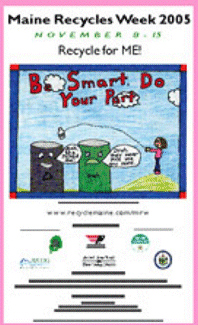 More than 3,000 Maine Recycles Week (MRW) posters were mailed out the first week of October to schools and municipalities throughout the state, where they will be prominently displayed. The posters herald the beginning of another year of celebrating the recycling efforts of the communities throughout Maine and encouraging consumers to purchase products made from recyclables. Displaying the winning poster from last year's poster competition, as well as the sponsors who make this event possible, the posters are always a welcome sight in all the schools and municipal offices.
More than 3,000 Maine Recycles Week (MRW) posters were mailed out the first week of October to schools and municipalities throughout the state, where they will be prominently displayed. The posters herald the beginning of another year of celebrating the recycling efforts of the communities throughout Maine and encouraging consumers to purchase products made from recyclables. Displaying the winning poster from last year's poster competition, as well as the sponsors who make this event possible, the posters are always a welcome sight in all the schools and municipal offices.
Again this year, you can order the posters from the Internet by filling out a form on the Waste Management and Recycling Program's web site. The web site has been recently updated to promote MRW 2005. If the number of early requests for information and posters is any indication, Maine Recycles Week 2005 should enjoy a tremendous success, which should be translated into an increased awareness of recycling, purchasing of products that are made from recycled materials, and improved recycling rates throughout the state.
MRW 2005 is the seventh year that the State of Maine has recognized recycling efforts of its citizens, businesses and organizations. This year's theme - Recycle for Maine - was suggested by a citizen in an e-mail last year and selected when it appeared on a student's poster that ended up adorning the Maine Recycling Calendar for the month of June.










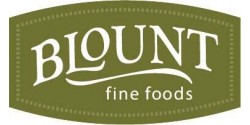
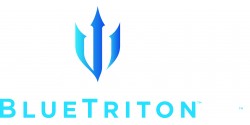


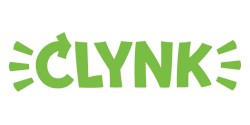
















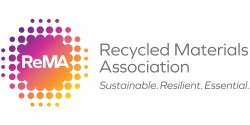



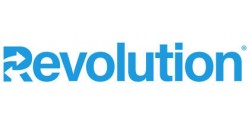



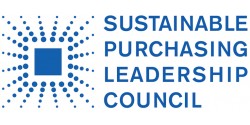

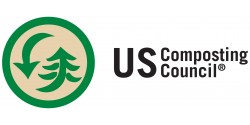


 and what goes in must come out. The "casts", or worm poop, is a valued fertilizer containing 5 to11 times more nitrogen, phosphorous and potassium than the surrounding soil, lots of beneficial soil microorganisms, humic acid (a soil conditioner), and a perfect pH balance. The casts don't contain any disease because pathogenic bacteria are killed in the worm's gut.
and what goes in must come out. The "casts", or worm poop, is a valued fertilizer containing 5 to11 times more nitrogen, phosphorous and potassium than the surrounding soil, lots of beneficial soil microorganisms, humic acid (a soil conditioner), and a perfect pH balance. The casts don't contain any disease because pathogenic bacteria are killed in the worm's gut. More than 3,000 Maine Recycles Week (MRW) posters were mailed out the first week of October to schools and municipalities throughout the state, where they will be prominently displayed. The posters herald the beginning of another year of celebrating the recycling efforts of the communities throughout Maine and encouraging consumers to purchase products made from recyclables. Displaying the winning poster from last year's poster competition, as well as the sponsors who make this event possible, the posters are always a welcome sight in all the schools and municipal offices.
More than 3,000 Maine Recycles Week (MRW) posters were mailed out the first week of October to schools and municipalities throughout the state, where they will be prominently displayed. The posters herald the beginning of another year of celebrating the recycling efforts of the communities throughout Maine and encouraging consumers to purchase products made from recyclables. Displaying the winning poster from last year's poster competition, as well as the sponsors who make this event possible, the posters are always a welcome sight in all the schools and municipal offices. On Tuesday, October 25, 2005, the U.S. Environmental Protection Agency (EPA) presented the New Jersey Department of Environmental Protection (NJ DEP) with an Endorser of the Year Award for actively and enthusiastically promoting the WasteWise program. NJ DEP's creative dissemination of waste reduction information has educated many audiences.
On Tuesday, October 25, 2005, the U.S. Environmental Protection Agency (EPA) presented the New Jersey Department of Environmental Protection (NJ DEP) with an Endorser of the Year Award for actively and enthusiastically promoting the WasteWise program. NJ DEP's creative dissemination of waste reduction information has educated many audiences.